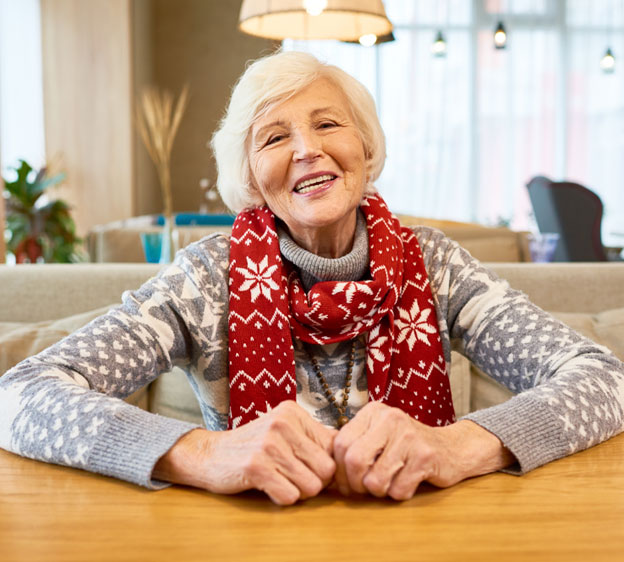
While festive, the holidays also can be stressful, with chaotic schedules, last-minute shopping and massive preparations for time with family and friends. And if you have a loved one with dementia, it can be an even more demanding time of year.
“Planning for the holidays is key,” says Dr. Paul Mazzeo, board-certified neurologist. Follow Dr. Mazzeo's suggestions on how to make this holiday season successful alongside someone with Alzheimer’s disease or other form of dementia.
1. Involve a loved one with dementia in the preparations. Opening holiday cards together may help trigger long-term memories. Hanging ornaments on the tree and stirring the Christmas cookie batter can provide a sense of purpose and satisfaction.
2. Try to avoid overstimulation. Elaborate holiday displays of blinking lights and large decorations can lead to disorientation. Avoid lighted candles and decorations that may be mistaken for edible treats. Alcohol should be restricted.
3. Limit the size of gatherings. People with dementia can become easily confused and agitated in large crowds. In addition, because people with dementia are older and may have other health conditions, they are at high risk for complications from COVID-19.
Read More: Celebrating While Someone Is Sick
4. Schedule gatherings at the best time of day for your loved one. Limit the duration of gatherings to what you feel he or she can tolerate. Realize those with dementia tire easily, which often manifests as increased confusion.
5. Maintain a routine. Routines provide an anchor in the here and now. Gatherings should be held in the person’s most familiar surroundings. For a person residing in an assisted living or skilled nursing facility, the increase in activity can lead to disorientation.
6. Buy gifts that account for your loved one’s impairments. An electric coffee maker or teapot that turns off automatically, calendars and medication holders are particularly good gifts because they help the recipient adapt to the illness. Less practical but more emotionally gratifying gifts can be family photo albums, familiar music, recordings of church sermons and gift certificates for a hairstyle or manicure. Avoid items that are breakable or irreplaceable.
Learn More: Memory Care
“If you are a caregiver, do not forget to reserve time for yourself,” Dr. Mazzeo says. “Set limits on events — and stick to them — to keep from being overwhelmed.”
And remember: Despite the challenges of dementia, the holidays still can be a rewarding time for you and your family.
If you are concerned about memory loss, a good first step is to speak with your primary care provider (PCP). Don't have a PCP? Find one who is accepting new patients.

